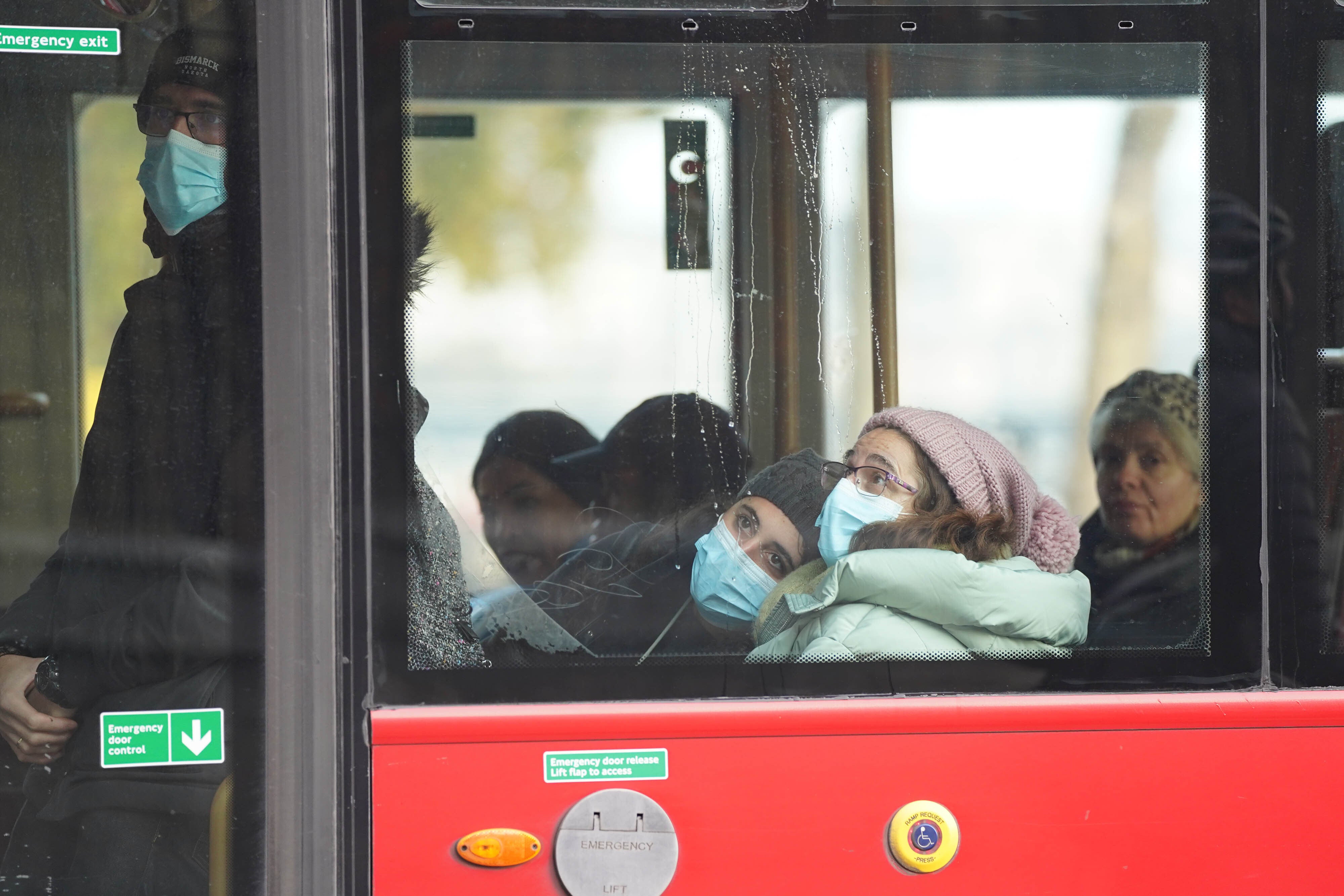What are the Covid rule changes introduced today?
New measures to slow the spread of the Omicron coronavirus variant came into force in England on Tuesday.

Your support helps us to tell the story
From reproductive rights to climate change to Big Tech, The Independent is on the ground when the story is developing. Whether it's investigating the financials of Elon Musk's pro-Trump PAC or producing our latest documentary, 'The A Word', which shines a light on the American women fighting for reproductive rights, we know how important it is to parse out the facts from the messaging.
At such a critical moment in US history, we need reporters on the ground. Your donation allows us to keep sending journalists to speak to both sides of the story.
The Independent is trusted by Americans across the entire political spectrum. And unlike many other quality news outlets, we choose not to lock Americans out of our reporting and analysis with paywalls. We believe quality journalism should be available to everyone, paid for by those who can afford it.
Your support makes all the difference.Measures to slow the spread of the newly-identified Omicron coronavirus variant came into force on Tuesday.
Prime Minister Boris Johnson announced the rules over the weekend amid concerns about the effectiveness of vaccines against the new variant.
– What are the new rules on face coverings?
Face coverings are again compulsory in England in shops and settings such as banks, post offices, hairdressers, and public transport, unless people are exempt. Hospitality settings such as pubs and restaurants are not affected.
Pupils in year 7 and above, teachers and visitors should wear face coverings in communal areas in schools, colleges and universities in England.
The reintroduction of compulsory face coverings brings England closer into line with Scotland Wales and Northern Ireland.
– What are the new rules on international travel?
Anyone entering the UK from any destination abroad will have to take a PCR test within two days of arrival and self-isolate until they have a negative result.
Previously, vaccinated travellers only had to take a Day 2 lateral flow test, and did not have to self-isolate unless they received a positive result.
The UK’s travel red list was expanded over the weekend to include 10 African nations: Angola, Botswana, Eswatini, Lesotho, Malawi, Mozambique, Namibia, South Africa, Zambia and Zimbabwe, forcing arrivals into hotel quarantine for 10 days.
– What about vaccines?
The booster vaccine campaign has been expanded, with a booster dose of the Covid-19 vaccine now offered to all adults three months after people had their second dose of an original vaccine.
A second jab will be offered to young people aged 12 to 15.
The Prime Minister said: “Based on everything we know, our vaccines and boosters remain our best line of defence, so it is more important than ever that people come forward when eligible to get boosted”.
– What are the other new rules?
All contacts of suspected Omicron cases must self-isolate for 10 days, regardless of their age or vaccination status. They will be contacted by NHS Test and Trace.
– Why are the new rules being implemented?
The Prime Minister said the measures are “proportionate and responsible” and will “buy us time in the face of this new variant”.
Scientists are concerned by the Omicron, or B.1.1.529 variant, because it has a high number of spike protein mutations, potentially changing the behaviour of the virus with regards to vaccines, treatments and transmissibility. All this is still uncertain, and the precautions give scientists time to properly study the new variant.
The Government said the “temporary and precautionary” measures will be reviewed in three weeks, just days before Christmas.
– What are the restrictions in Scotland, Wales and Northern Ireland?
Unlike in England, people in Scotland, Wales and Northern Ireland have to prove their vaccine status to enter nightclubs and other venues.
Face coverings are compulsory in most indoor public spaces, including pubs and restaurants in Scotland and Northern Ireland.
Working from home is recommended where possible.
In Scotland, indoor hospitality venues must collect customer contact details.
In Northern Ireland, gatherings of 30 people or more in domestic settings are not permitted.